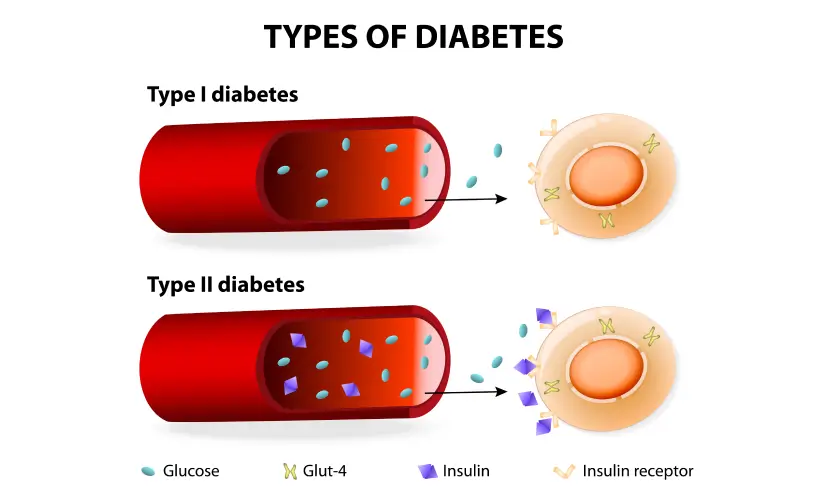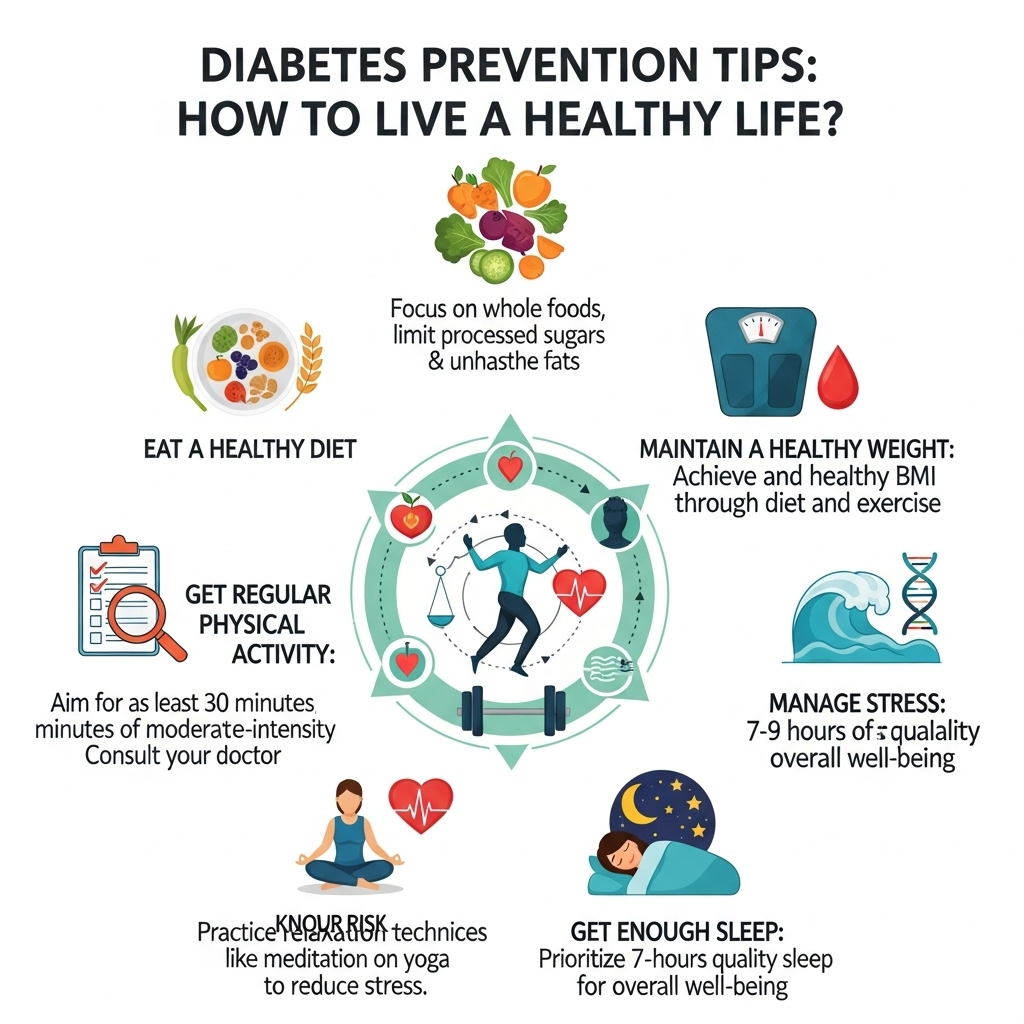Diabetes is one of the most common chronic diseases worldwide, affecting millions of people every year. It can be overwhelming to understand, but the good news is, with proper lifestyle changes, It can be prevented or effectively managed. In this blog, we’ll explore diabetes, how it affects your health, and simple, practical tips to control and manage it for a healthier life.
What is Diabetes?
Diabetes is a condition where the body cannot produce or effectively use insulin, a hormone that helps regulate blood sugar levels. There are two main types of diabetes:
- Type 1 Diabetes: An autoimmune condition where the body attacks the cells in the pancreas that produce insulin. This type usually develops early in life.
- Type 2 Diabetes: The more common form where the body becomes resistant to insulin or doesn’t produce enough. This type is often linked to lifestyle choices and tends to develop later in life.
Both types can lead to serious complications like heart disease, kidney failure, and vision problems if left unmanaged.

Risk Factors for Diabetes
Certain factors can increase your risk of developing diabetes. Here are the most common ones:
- Family History: If you have a close relative with a high blood glucose history, your risk increases.
- Being Overweight: Excess weight, especially around the abdomen, increases your risk of developing type 2 diabetes.
- Sedentary Lifestyle: Lack of physical activity contributes to weight gain and insulin resistance.
- Unhealthy Diet: A diet high in processed foods, sugars, and unhealthy fats can contribute to diabetes.
- Age: The risk of type 2 diabetes increases with age, especially after 45.

Preventing Diabetes: Simple Lifestyle Tips
While genetics play a role in the development of diabetes, your lifestyle has a significant impact on whether or not you develop the condition. By adopting a healthier lifestyle, you can lower your risk or manage this if you already have it.
1. Maintain a Healthy Weight
Being overweight is one of the leading risk factors for type 2 diabetes. Losing even a small amount of weight can help reduce the risk and improve overall health. Aiming for a healthy weight through diet and exercise is a powerful step in preventing diabetes.

Image Source [Google]
2. Eat a Balanced Diet
What you eat plays a major role in preventing and managing high blood glucose levels. Focus on a well-balanced diet that includes:
- Whole Grains: Opt for whole grains like brown rice, oats, and whole wheat bread.
- Fruits and Vegetables: Aim to fill half your plate with non-starchy vegetables like leafy greens, peppers, and carrots.
- Healthy Fats: Incorporate healthy fats from sources like avocados, olive oil, and nuts.
- Lean Proteins: Choose lean protein sources such as chicken, turkey, and plant-based options like tofu and beans.
Avoid excessive consumption of sugary drinks, refined carbs, and processed foods.

3. Exercise Regularly
Physical activity is crucial in preventing and managing diabetes. Aim for at least 30 minutes of moderate exercise, such as walking, cycling, or swimming, five days a week. Regular physical activity helps your body use insulin more effectively and helps maintain a healthy weight.

4. Monitor Your Blood Sugar Levels
If you’re at risk or have been diagnosed with prediabetes, monitoring your blood sugar levels regularly is essential. Early detection allows for prompt intervention, including lifestyle adjustments and, in some cases, medication. Consult your healthcare provider about how often you should check your blood sugar.
5. Manage Stress
Chronic stress can contribute to the development of type 2 diabetes by increasing blood sugar levels. Managing stress through relaxation techniques such as yoga, deep breathing exercises, or meditation can significantly benefit your health.

6. Get Enough Sleep
Lack of sleep or poor-quality sleep can increase your risk of developing diabetes. Aim for 7-9 hours of quality sleep per night. Sleep helps regulate hormones, including those that control blood sugar and appetite.
Living Well with Diabetes
If you’ve already been diagnosed, it’s important to follow these lifestyle habits as a way to manage your condition effectively. Along with these changes, regular check-ups with your healthcare provider and following their advice will help keep your blood sugar levels in check.

Conclusion:
Understanding diabetes is the first step toward preventing and managing it. With the right lifestyle changes, such as maintaining a healthy weight, eating a balanced diet, staying active, and managing stress, you can significantly reduce your risk and lead a healthier life. If you already have diabetes, following these tips can help you manage the condition and live well.
By following these simple steps, you can take control of your health and reduce your chances of getting prediabetic. Prevention is always better than cure, and it’s never too late to make positive changes in your life.






